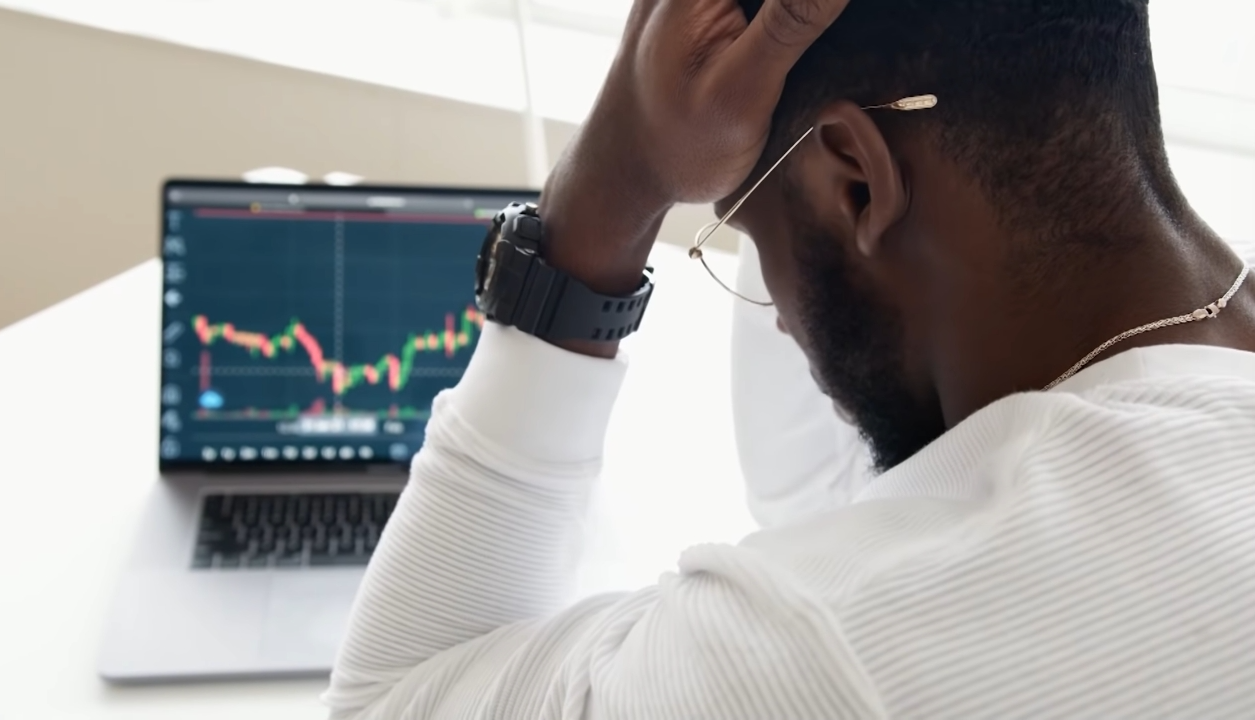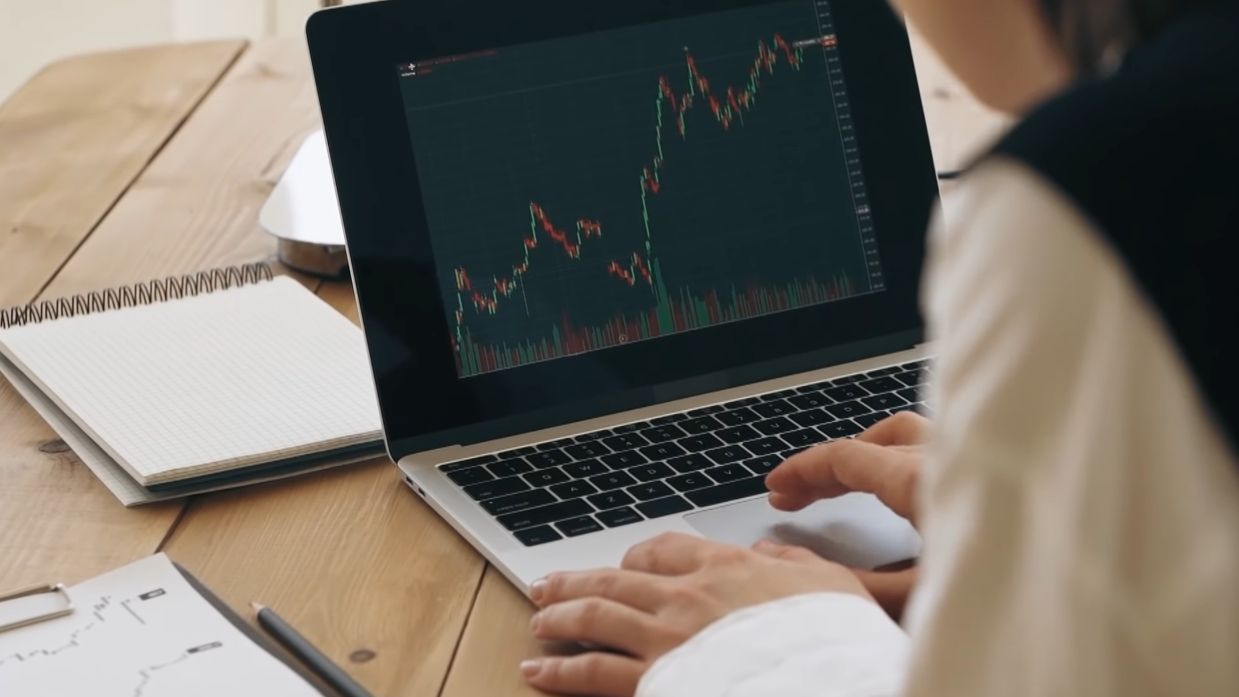1. Self:

In investing, you are the captain steering your own team. A skilled investor knows when to put the portfolio on the offensive and when to switch to a defensive stance. Attacking at the wrong time will lead to instant horrific losses, while defending at the wrong time will result in missing out on great profit opportunities in the market. If you are only good at attacking, you may achieve proud short-term profits but will lose all that money in the long run. If you are only good at defending, your profit rate may struggle to beat the general profit rate of the VN Index market. Therefore, a smart investor is one who has the best sense of the market situation and adjusts the balance between offense and defense in the investment portfolio accordingly.
Another way to think about offense and defense in investing is to consider the two types of risks that always accompany the market: capital loss risk and missed profit opportunity risk. When a team is attacking, they must accept the high defensive line and leave a large gap behind - this is a risk if the opponent launches a quick counterattack. Similarly, increasing the offensive position in the investment portfolio always comes with a higher risk of loss. This is particularly dangerous when the market is going through uncertain times and many investors start reacting emotionally and herd-like. However, if you focus only on defense to preserve the score, scoring goals will be very difficult, so forwards must make good use of opportunities.
2. Opportunity:

How does the market cycle affect the position of the investment portfolio? When investors focus too much on defense, they may miss out on many great profit opportunities in the past, and therefore may struggle to outperform the market in the long run. The market always operates in its own way, and stock price fluctuations depend on many factors beyond the control of investors. Most investors have their own expectations about the future prospects of the market based on sound economic arguments.
Another way to think about offense and defense is to consider the two risks: capital loss risk and missed profit opportunity risk. In a rising market, the risk of capital loss is usually lower than the risk of missing out on profit opportunities. The opposite is true for a falling market. The position of the market cycle is one of the most important factors determining the balance between offense and defense in an investor's portfolio.
Investors prioritize attacking in the market to maximize profits. Conversely, investors who want to ensure results or minimize losses will switch to a defensive position. Some common actions related to the offensive position include: increasing the amount of money invested in risky assets, using high leverage, focusing on a few stocks instead of diversifying, and chasing stocks that have already risen in price. Meanwhile, defense includes: increasing the cash ratio, holding safe stocks, reducing margin ratios, and diversifying the portfolio safely.
Experienced investors will recognize that these behaviors are closely linked to the market cycle. In a bullish phase, accepting more risk to increase profits is very common. Conversely, in a panic phase, most investors increase the cash holding ratio and refuse to participate in the market.
3. Experience:

Investors cannot eliminate both loss risk and missed opportunity risk at the same time, as they always go hand in hand. If investors prioritize attacking, they accept that the risk of capital loss also increases. Conversely, if they prioritize defense, they must overlook many profit opportunities. Therefore, the most important thing a smart investor can do is to decide the priority order between offense and defense depending on the market situation.
Predicting the market is extremely difficult, if not impossible. However, the difference between seasoned investors and amateurs is the ability to estimate more accurately the probability of the market's investment prospects in the future. If they estimate that the market is likely to be in a long-term uptrend, they will be willing to shift their investment portfolio to an offensive position to maximize profits, accepting that the risk of capital loss is not as important as missing out on great profit opportunities. The opposite is true for a declining market.
However, investors must also understand that the market is always full of uncertainty. Therefore, there is a great risk in prioritizing offense or defense without predicting the market trend correctly. Deciding to increase leverage and invest in speculative stocks when the market is about to decline can lead new investors to ruin, even wipe out their accounts. On the other hand, a portfolio that is too focused on defense when the market is rising strongly will only achieve modest returns compared to other investors and may cause unavoidable envy.
The precise timing of when to attack or defend is one of the most important skills that investors need to master. Market experience will help investors recognize reliable signals in determining the market cycle phase. As the famous saying of legendary investor Warren Buffett goes: "Be greedy when others are fearful and be fearful when others are greedy." Although this saying has become very common, it is still very true in a situation where the whole market is crazily buying stocks, especially speculative stocks, which may be a sign of an impending downturn. This is the most appropriate time for smart investors to prioritize a defensive position to preserve their investment achievements.
In investing, one of the most common pieces of advice is to diversify the investment portfolio because no one wants to put all their eggs in one basket. However, there is a completely opposite view from famous investors and entrepreneurs. Andrew Carnegie once said: "Put all your eggs in one basket, and watch that basket closely." Warren Buffett also supported a concentrated investment style, for example, arguing that diversification often means adding money to poorer investments rather than focusing on the best investments.
Reflecting on the two diversification and concentration philosophies, the writer observes that the benefit of diversification is psychological safety and stable performance, while concentration on investment prioritizes offense. In reality, if you know exactly what will happen, the wisest action is to focus on investing in the most profitable item and ignore the others.
Diversifying the investment portfolio is not necessary if investors can be confident about the future. However, this raises the question: how many of us can confidently control the fate of investments completely? Investors like Warren Buffett or Andrew Carnegie have the ability to bet on the future superiorly. If you have the skills and high confidence in the future prospects of investments, there is no reason not to focus on the most profitable investments.
The lesson here is not about superior defensive skills over offense or vice versa, but how to achieve the optimal balance between offense and defense in the investment portfolio. An optimal portfolio is when the market goes up, your profit rate increases in line with the market.
Cycling the balance between offense and defense in investing is extremely important. When the market declines, a well-balanced investment portfolio will help you be less affected than the market's decline. This is the difference between skilled investors and the rest.
4. Market:

Renowned investor Warren Buffett, after many years of battling in the US stock market, concluded that the most important job of a fund manager is not to decide how to allocate money into stocks or bonds, domestic or foreign markets, large or small-cap stocks, or different investment strategies. Instead, the most important job is to determine the balance between offense and defense in the investment portfolio. Other factors will become meaningless if you make a mistake in balancing offense and defense. If this balance is optimal, good things will come sooner or later. Conversely, just one foolish mistake in determining the timing of an attack when the market is undergoing a sharp correction can turn all achievements into immediate disasters.
Being too cautious when the market is growing strongly will only bring modest profits compared to the market. Although it feels safe, your investment results can be much better if you know how to adjust properly. Smart investors must constantly adjust the balance ratio to fit the market situation, the behavior of other investors, and the stage of the market cycle. When the market becomes euphoric, many investors accept high risks to increase profits, leading to stock prices rising too high compared to intrinsic value, making the market increasingly dangerous. This is when investors need to prioritize a defensive position to preserve their investment achievements, as the risk of capital loss is greater than the risk of missing out on opportunities.
Conversely, when the market is less risky, investors should enhance the offensive position to maximize profits, focusing on stocks with risks but also high profit potential as the market rises. However, this does not mean neglecting defense. Strict risk management is always necessary to avoid being eliminated from the market. Prioritizing offense when market conditions allow is necessary, but it must be done wisely. The skill of adjusting the balance between offense and defense requires investors to have a clear, different view from the emotions of the crowd and the ability to make independent and objective assessments of risks and profits.
In conclusion, remember the words of legendary investor Warren Buffett, slightly modified: "Be decisive in attacking when the whole market is fearful and be firm in defense when the whole market is wildly successful."
